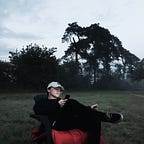First Cow (2019)
Lush cinematography, shot by Christopher Blauvelt in 4:3, frames this tender tale of friendship and entrepreneurship amidst the undergrowth of 1820s Oregon. “The problem with being poor”, muses Chinese immigrant King-Lu (Orion Lee), “is getting started — you need capital.” Alongside the trapper, Cookie (John Magaro) — whose penchant for foraging is met only by his baking skills — King-Lu solves the proletarian dilemma by stealing milk from the only cow in the frontier, the property of one Chief Factor (Toby Jones). Together they flog biscuit delicacies, turning profits right under the nose of the Chief, before an accident gets them caught. The friends scramble, reunite, and then leave in search of more abundance.
This was the second Kelly Reichardt film I’ve seen after 2013’s Night Moves. The latters nightmarish tension is quite apart from First Cow’s amiableness, which ends up setting in treacle the more subversive themes the film threads. Hard work is here no foundation for capital, but the inverse. The bourgeois myth of original accumulation, in which the industrious outstrip the rest by sheer merit, is exposed as instead an accident of power. Cookie and King-Lu’s theft parallels the dispossession of indigenous peoples capitalism emerged from, ‘dripping from head to toe, from every pore, with blood and dirt’ (Marx). Reichardt flags this in a conversation between trappers, one of them deriding the Chiefs import because “if God wanted cows here, he would’ve put them here”, to which another applies the same logic to the White Man. Our wholesome protagonists are here turning the tables, as it were, by dispossessing the decadent capitalist (if only for their own market fantasies).
A finely-crafted film, rich in subtlety and delicate in ambition. Much like Cookie’s biscuits, I suppose.
